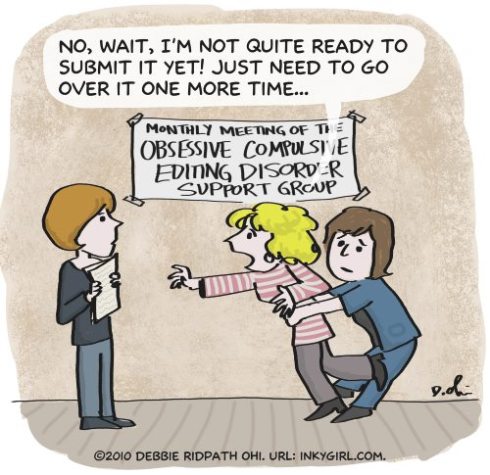It’s International Women’s Day, so I figured what better than a post about female characters and female authors…and then I figured why not combine those two subjects into one post. So here are some great women written by equally great women, or at least a few favorites of mine. I ended up having three memoirs on the list, but I figure each one of us is the protagonist in our own life, so I decided it would count. So here you go.
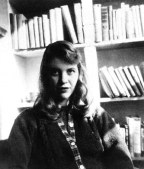
The Character: Esther Greenwood
The Book: The Bell Jar
The Author: Sylvia Plath
Why She’s Awesome: Esther is a talented and successful young woman. While she certainly falls into a period of mental instability throughout the novel, she nonetheless remains a fascinating protagonist to follow into the depths of her breakdown.
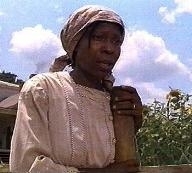
The Character: Celie Johnson
The Book: The Color Purple
The Author: Alice Walker
Why She’s Awesome: In spite of all she’s been through, Celie remains resilient. Her struggles have been great and many, but Celie does not let that hold her back from finding happiness. She’s an incredibly inspiring character in her love for those around her, and her hope for better things.
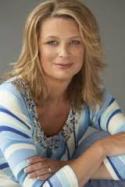
The Character: Vianne Mauriac and Isabelle Mauriac
The Book: The Nightingale
The Author: Kristin Hannah
Why She’s Awesome: You read so many World War II stories about men fighting or men leading resistance groups, but this book shows two strong women who fight for what’s right during the French occupation. Vianne and Isabelle both show incredible resilience and strength of character.
The Character: Emily Bronte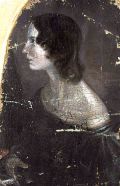
The Book: Emily’s Ghost
The Author: Denise Giardina
Why She’s Awesome: Giardina’s imagined version of Emily Bronte doesn’t care about social norms, defying what is expected of her as a woman of her time. She is intelligent and extremely talented in spite of her odd qualities. She loves animals and isn’t afraid of debating with men.
The Character: Cath Avery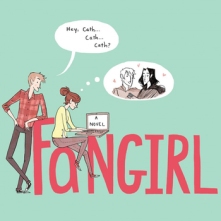
The Book: Fangirl
The Author: Rainbow Rowell
Why She’s Awesome: Cath Avery describes herself as a complete disaster. To be honest, it’s sort of true. But she is nonetheless a lovable character who struggles through a transition into a new environment while dealing with family problems and her own anxieties. Cath’s hope and imagination make her shine as a character.
The Character: June Woo and others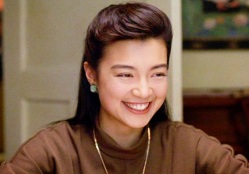
The Book: The Joy Luck Club
The Author: Amy Tan
Why She’s Awesome: All of the women in this book are amazing, but June’s story does seem to be the one that begins and ends the book, so I thought I’d mention her most. June is a bit unsure of herself at times. She wants to be American and often pushes away her mother’s traditions, but after a while she begins to understand that her identity is wrapped up in her heritage.
The Character: Ayaan Hirsi Ali
The Book: Infidel
The Author: Ayaan Hirsi Ali
Why She’s Awesome: One of the memoirs on here where the protagonist is also the author. Ali describes a brutal history including a female circumcision and other unjust practices she experienced in her family and the countries she lived in. Ali is brave and intelligent, and her pursuit of a better life is truly inspiring.
The Character: Orlando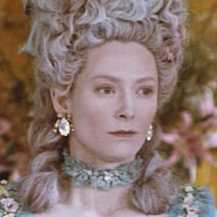
The Book: Orlando
The Author: Virginia Woolf
Why She’s Awesome: Well, this takes some understanding of the book, but Orlando actually is born a man and wakes up one day as a woman. To be honest, I liked that she didn’t really think all that much of becoming a different sex, other than realizing the restrictions placed upon her as a result. Orlando continued to live a free life, writing and searching for love. She’s pretty awesome as a result (plus she’s played by Tilda Swinton in the film version!)
The Character: Rachel Held Evans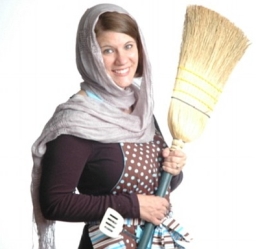
The Book: A Year of Biblical Womanhood
The Author: Rachel Held Evans
Why She’s Awesome: Evans writes a fantastic book about a journey to understanding more about life as a Christian woman exploring traditions of the past and present in her book. She’s quite funny and a talented writer, and displays a clever and open spirit that makes her works so enjoyable to read. As a Christian woman wrestling with what being a woman really means, I have to really recommend her book.
The Character: Offred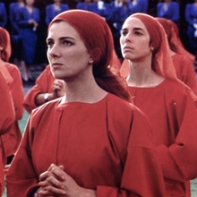
The Book: The Handmaid’s Tale
The Author: Margaret Atwood
Why She’s Awesome: Offred lives in a society that severely oppresses its women. In spite of that she remains strong. She continually remembers the better times, and soon begins to pursue an escape. Her journey in her present oppression and remembering her better past life brings about great questions about sex and society.
The Character: Harriet Jacobs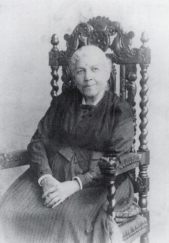
The Book: Incidents in the Life of a Slave Girl
The Author: Harriet Jacobs
Why She’s Awesome: Many people read slave narratives describing the lives of men, but it’s even more interesting to read into the lives of those not only oppressed for their race but also for their sex. Jacobs shows a great amount of persistence in her fight for a better life for herself and her family. She is intelligent and strong, never giving up no matter how hard her circumstances become.
The Character: Jane Eyre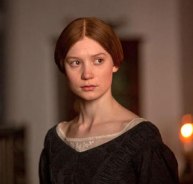
The Book: Jane Eyre
The Author: Charlotte Brontë
Why She’s Awesome: Jane is a fantastic character. She maintains her own self-confidence in spite of everyone around her who tries to discourage it. She is determined to ignore the circumstances into which she was born, rising above it as best she can. Jane is clever and honest, and she never once gives up.
The Character: Skeeter Phelan, Aibileen Clark, Minny Jackson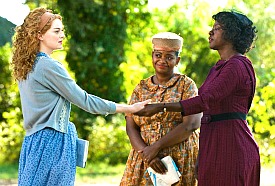
The Book: The Help
The Author: Kathryn Stockett
Why She’s Awesome: All three of these characters are fantastic. From Skeeter who is determined to have a career instead of a family, to Aibileen who is trying to inspire love in the children she watches in spite of the cruelty she faces everyday, to stubborn Minny who refuses to sit quietly and take abuse, all three of these women are amazing creations.
The Character: Janie Starks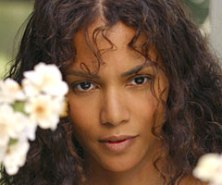
The Book: Their Eyes Were Watching God
The Author: Zora Neale Hurston
Why She’s Awesome: Janie is determined to find love, following her childhood dreams in spite of everything she’s been taught. Janie is tough and clever. She doesn’t back out of a fight. She lets Teacup teach her how to hunt and fish and wears overalls instead of dresses.
The Character: Anne Elliot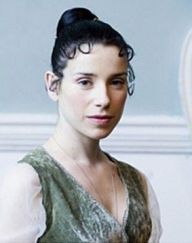
The Book: Persuasion
The Author: Jane Austen
Why She’s Awesome: While most people lean towards Lizzy Bennet as their favorite Austen girl, I wanted to go for the more quiet Anne Elliot. She is quite prudent in her decisions about life, resulting in her giving up love in fear of it being the wrong decision. Anne is accomplished and intelligent in spite of not being quite the same fiery heroine as many of Austens other girls.
Here are just a few of the awesome women writers and characters. I could not include them all, and I also did miss some great ones created by men.
Who are some of your favorite female characters and/or writers? How are you celebrating International Women’s Day?
















